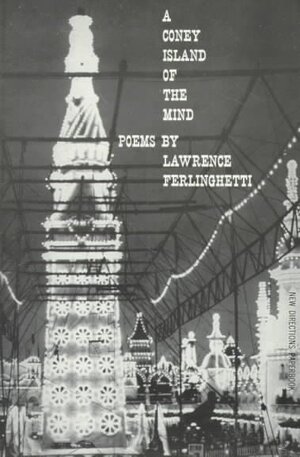Lawrence Ferlinghetti, Poet and Publisher, Dies at 101
Posted on February 24, 2021
Filed Under Culture, People | Leave a Comment
From Bill Mohr’s Blog, Koan Kinship:
Lawrence Ferlinghetti is Dead; Long Live City Lights
Feb. 23, 2021 — Lawrence Ferlinghetti (1919 – 2021)
Early this afternoon, I heard the news that Lawrence Ferlinghetti had died. I guess that Naomi Replansky will remain the oldest living American poet for at least a little longer.
Tributes to him will no doubt flourish as the obituaries trot out the familiar details, but the only important tribute has already been paid by those who cared the most about his most significant accomplishment, a bookstore that took up the 18th century model of also being a publisher. In the early months of the Pandemic, City Lights Bookstore held a fundraiser in hopes of stabilizing its chances of surviving the loss of its flow of daily customers. The fundraiser was so successful that the bookstore generated a minor endowment that will nurture it through at least the rest of this decade. In 2028, the store will turn 75 years old. It is not too early to plan on making that occasion a chance to reflect on the hundreds of thousands of copies of books that have found grateful readers thanks to this store’s visibility.
And from NPR:
Lawrence Ferlinghetti has died in San Francisco. He was 101. Ferlinghetti is probably best known for three things: his Beat poetry, his San Francisco bookstore and small press, and his defense of the First Amendment in a famous court case.
His most famous work is a 1958 collection of poetry called A Coney Island of the Mind. In it, he compares the horrors depicted in Francisco Goya’s paintings of the Napoleonic wars to scenes of post-World War II America.

A Coney Island of the Mind was translated into nine languages and sold more than a million copies. Despite his popularity, Ferlinghetti was never considered on par with some of the other Beat writers he called his friends — Jack Kerouac, Gregory Corso and Allen Ginsberg.

Even though Ferlinghetti was raised in New York, he said he never met those East Coast writers until he moved to San Francisco and opened his bookstore, City Lights.
“A bookstore is a natural place for poets to hang out,” Ferlinghetti said in a 1994 interview. “And they started showing up there right from the beginning.”
City Lights became a magnet for West Coast intellectuals and later a tourist destination.
Ferlinghetti also started a small press called City Lights Books. In the fall of 1956, he published a little 75-cent paperback, the first edition of Howl by Allen Ginsberg.
Howl was a new type of poetry that gave voice to an undercurrent of dissatisfaction in Dwight Eisenhower’s America. It became an anthem for the nascent counterculture.
“Before Allen Ginsberg’s Howl, the state of poetry in America is a little bit like the way it is today: poetry about poetry,” Ferlinghetti said in 1994. “Howl knocked the sides out of things, just the way rock music in the ’60s knocked the sides out of the old music world.”
Howl included passages describing sex — both between men and women and between two men — and Ferlinghetti was arrested in 1957 on charges of publishing obscene material. At the end of a long federal trial, the poem was found to have redeeming social importance and therefore to not be obscene.
Comments
Leave a Reply